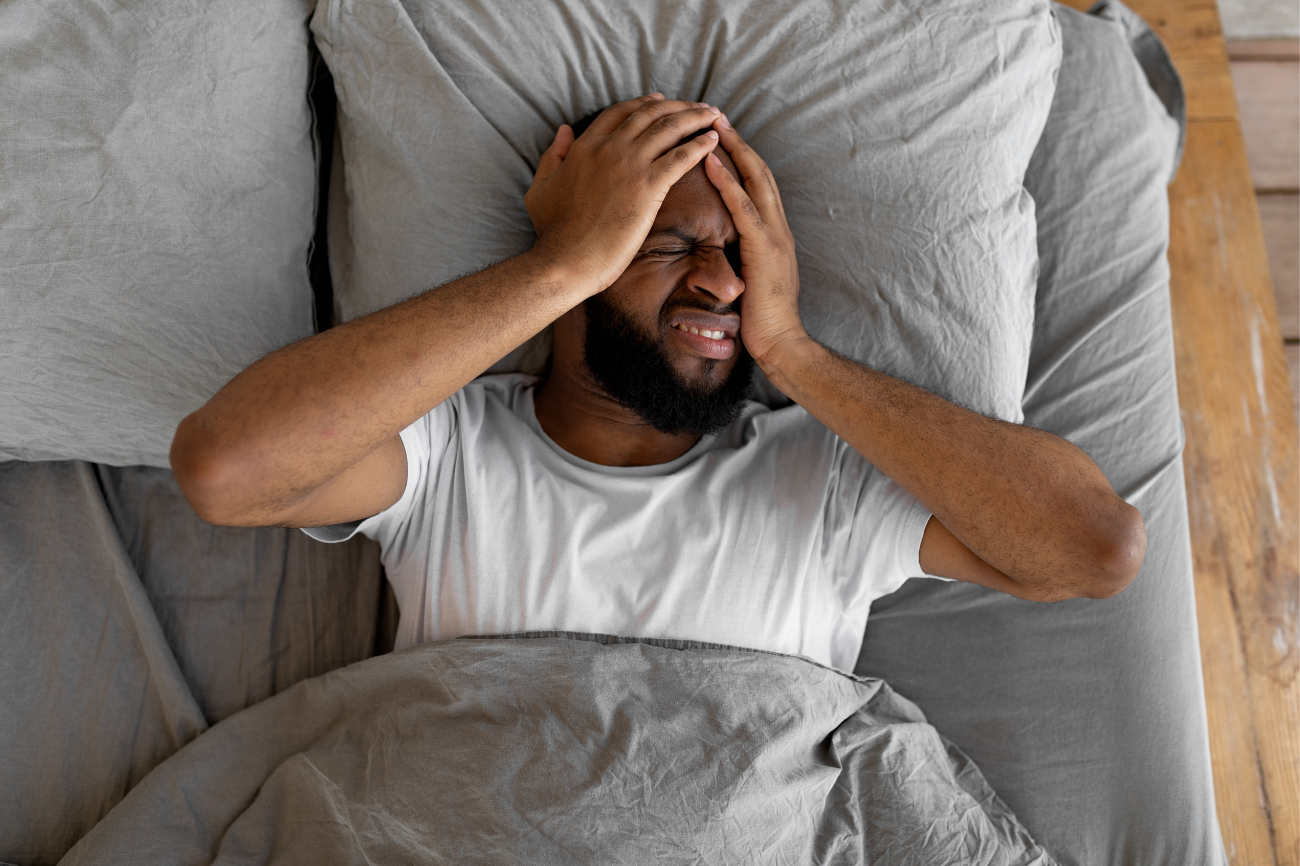Why Headaches Happen During Sex
Posted on Categories Discover Magazine

It’s not unusual to hear of people getting headaches due to stress, poor sleep or sinus problems. Most of us have experienced one at some point. However, headaches can also occur during or after sex — and this may be unusual for some.
Around 1 percent of adults report having experienced sex-induced headaches, also known as sex headaches or orgasm headaches. But because many people feel uneasy mentioning it all, the condition tends to fly under the radar.
What Is a Headache During Sex?
Sex-induced headaches can occur during both partnered and solo sex. Some people experience the uncomfortable sensation only once in their lives, but others may have them in clusters over the course of months.
The headaches tend to crop up more among males and people with a history of migraines.
According to Kiran Rajneesh, director of the Neurological Pain Division at Ohio State University’s Wexner Medical Center, sex-induced headaches are likely vascular in origin. This means that the pain occurs due to the dilation and swelling of blood vessels.
These headaches may share similar qualities to exertion headaches, which are typically brought on by sudden or intense physical activity like running or weightlifting.
After all, sexual activity is a form of exertion, says Nestor Galvez-Jimenez, professor of neurology at the Cleveland Clinic Lerner College of Medicine. Both heart rate and blood pressure can increase during sex, and the blood vessels in the brain may dilate as a result.
Read More: What’s Really Going on When Your Head Aches?
What a Sex Headache Feels Like
Headaches associated with sexual activity may present differently than those you are used to.
Rajneesh says they can occur as one of three types: a dull ache that intensifies with increased sexual activity, an explosive type that occurs abruptly during sex at orgasm, or a postural type associated with position. The latter gets worse when you sit up and lessens when lying down.
Some of these headaches last only a few minutes and improve immediately, even without taking pain medication. But they may also last for hours or several days. Though they are usually benign and don’t often require treatment, you can take over-the-counter pain relief drugs like acetaminophen or ibuprofen if they are bothersome, says Rajneesh.
“If the headaches persist and remain high in intensity, seeking medical help is reasonable,” he adds.
Read More: There’s More Than One Type of Pain. Scientists Are Learning to Treat Each of Them.
Are Sex Headaches Dangerous?
Galvez-Jimenez says a slow buildup of tension in the neck, shoulder, or around the temples could increase in intensity and ultimately reach an explosive quality that is severe, pulsating and throbbing.
In some cases, this can be accompanied by blurred vision, nausea, vomiting and neurological symptoms like slurred speech and arm weakness, he continues.
Such explosive headaches call for a run to the emergency room, as they may indicate severe conditions like an aneurysm, subarachnoid hemorrhage or intracerebral hemorrhage. It will be considered an emergency until determined otherwise, says Galvez-Jimenez, and head pain will be treated appropriately.
Even if it’s your first time experiencing a headache induced by sexual activity, you should get in touch with your healthcare provider to rule out serious causes.
Read More: The Science of Migraines
How to Stop Sex Headaches
If you regularly have headaches with sexual activity, you can premedicate with acetaminophen, says Rajneesh. Consider taking an over-the-counter pain reliever or migraine medication about 30 minutes before sexual activity.
Treatments are individualized and may depend on a variety of factors: frequency of sexual activity, severity of symptoms, age, comorbid conditions and more, says Galvez-Jimenez. If deemed necessary, preventive medications like indomethacin, triptans and propranolol may be prescribed either daily or occasionally.
Galvez-Jimenez also recommends keeping a headache diary; it can be a valuable tool for identifying the frequency, triggers and clustering of symptoms. This is especially helpful when discussing the condition with a healthcare provider.
“There is no need for anyone with sexual headaches not to have them treated and enjoy that aspect of their lives,” Galvez-Jimenez says.
Read More: Chronic Pain Makes You Think Differently